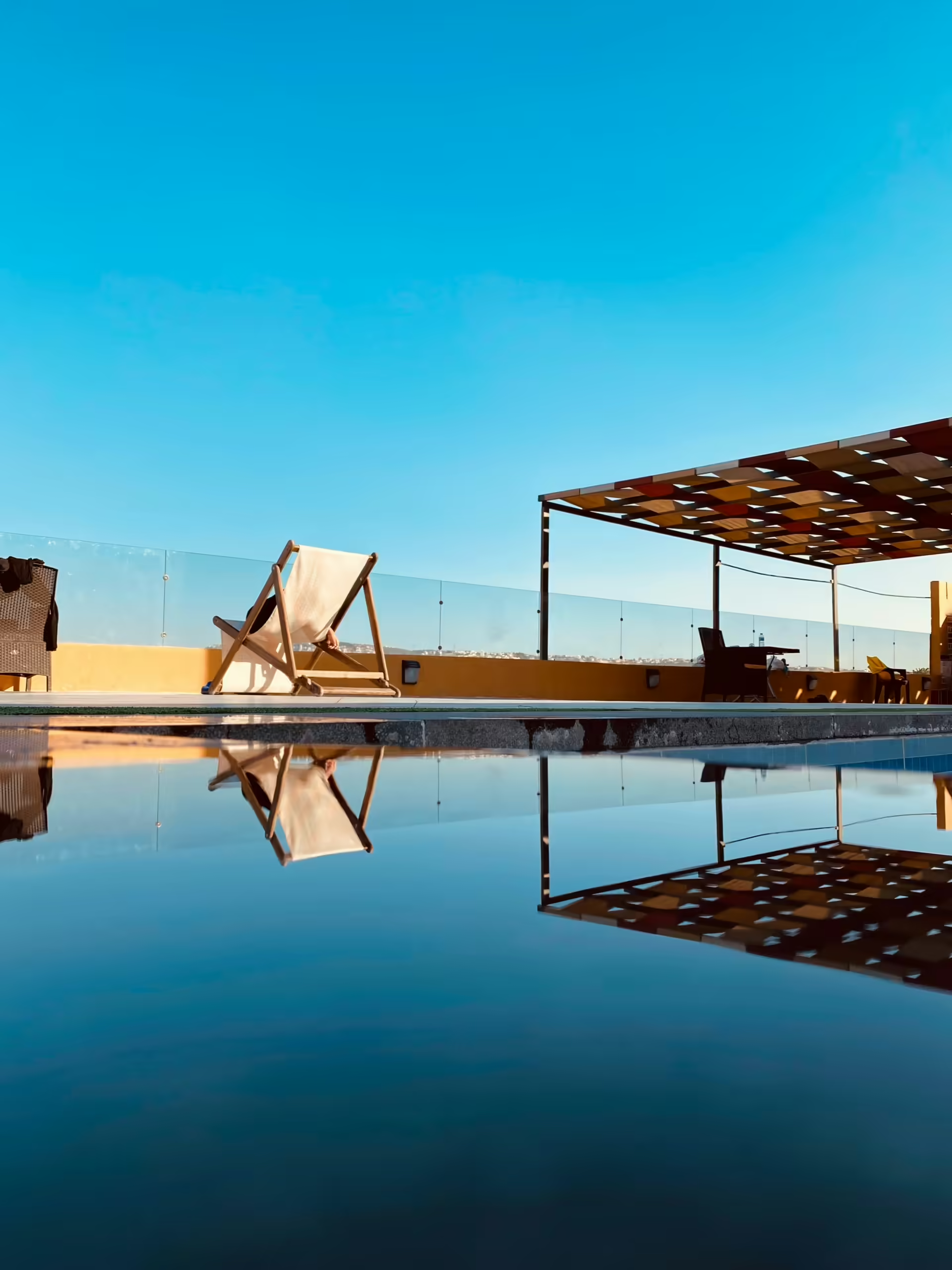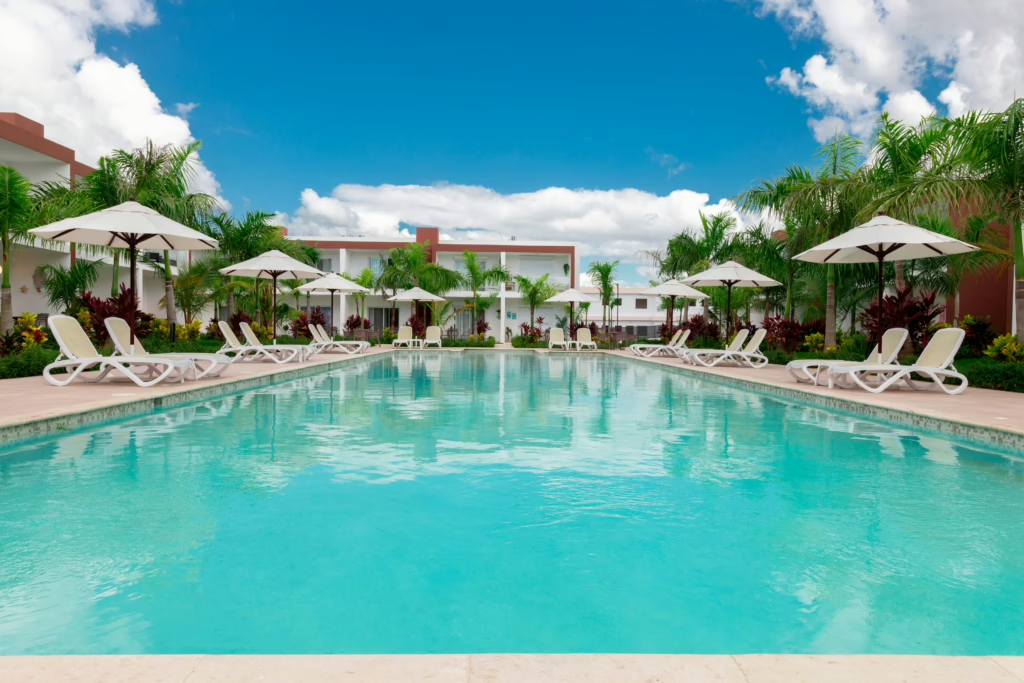Have you ever been relaxing by your pool when suddenly you hear a strange grinding noise coming from your equipment? Or maybe you’ve noticed your water just doesn’t look as crystal-clear as it used to? Trust me, I’ve been there – and your pool pump might be crying out for help.
I can’t tell you how many times pool owners tell me they’ve been frantically searching “pool pump repair near me” after discovering their once-peaceful backyard oasis has turned into a maintenance nightmare. Here’s the thing though – your pump usually gives you plenty of warning signs before it completely gives up. Catching these early can be the difference between a quick fix and emptying your wallet on a total replacement.
Let me walk you through the signals your pool pump sends when it’s struggling, why this piece of equipment is so crucial, and some real-world advice on keeping it running smoothly. Whether you’re new to pool ownership or you’ve been maintaining one for years, knowing these warning signs is absolutely essential.
Why Your Pool Pump Is the MVP of Your Backyard
Before we dive into the warning signs, let’s talk about why your pool pump deserves some serious appreciation. I like to think of it as the heart of your entire pool system:
- It keeps water moving constantly, which prevents that gross stagnation that algae and bacteria absolutely love
- It pushes all that water through your filtration system, trapping leaves, dirt, and things you don’t even want to know about
- It makes sure your chemicals get distributed evenly (instead of having chlorine-heavy spots that irritate your skin)
- It’s the reason your water looks inviting rather than resembling a murky pond
I’ve seen what happens when pumps fail completely – and let me tell you, within days, that beautiful pool transforms into something you wouldn’t dip your toe in, let alone swim in!
5 Warning Signs Your Pool Pump Needs Professional Attention
1. Those Unusual Noises Aren’t Just Background Music
What you might hear:
- A persistent humming sound even though water isn’t moving
- Grinding or scraping noises that make you cringe
- High-pitched screeching that starts and stops randomly
What it means: Those sounds aren’t just annoying your neighbors – they’re your pump’s desperate SOS signals. When you hear humming but don’t see water moving, your motor is likely running but can’t turn the impeller (usually because something’s blocking it). That awful grinding? That’s usually bearings wearing out – and trust me, they won’t fix themselves. And that screeching? It’s basically your pump begging for lubrication or telling you the motor bearings are toast.
I had a customer who kept turning up their outdoor speakers to drown out their pump’s “little grinding noise.” By the time they called me, what could have been a simple fix had turned into a complete motor replacement. Don’t be that pool owner!
2. Weak Water Flow Has Strong Implications
How to spot it:
- Your return jets seem more like a trickle than the strong stream you remember
- The skimmer barely pulls in leaves floating right in front of it
- Water moves so sluggishly you can practically watch algae forming
What it means: Remember how forceful your jets were when everything was new? When that force diminishes, something’s definitely up. Sometimes it’s just clogged filters or baskets (an easy weekend fix), but it could also mean you’ve got air leaks in your system or your impeller is failing. Either way, without proper circulation, your pool becomes a breeding ground for algae and bacteria.
I always tell my clients – if you notice your water looking a bit cloudier than usual AND your flow seems weak, don’t wait around. That combination never improves on its own.
3. Water Around Your Pump Is Never a Good Sign
What to look for:
- Small puddles forming under the pump housing
- Drips coming from connections or seals that leave water spots
- Wet areas around fittings or the pump base when everything else is dry
What it means: Water belongs in your pool, not creating a mini oasis around your equipment pad! When you spot leaks, it usually points to worn-out seals, hairline cracks in the housing, or connections that have vibrated loose over time. Beyond wasting water (and we all know water bills aren’t getting cheaper), these leaks can damage your equipment pad and potentially create electrical hazards if water reaches sensitive components.
I had a client ignore a “tiny drip” for months – until that drip eventually caused enough water damage to require replacing not just the pump but also rebuilding part of their equipment pad. Even small leaks deserve immediate attention!
4. Frequent Shutdowns Signal Electrical Troubles
What happens:
- Your pump randomly quits in the middle of its cycle
- You have to restart it multiple times before it stays running
- Your circuit breaker trips so often you could find the reset switch blindfolded
What it means: A healthy pump should run its programmed cycles without drama or interruption. When yours starts behaving like it has a mind of its own, electrical issues are typically the culprit. Faulty capacitors, overheating from poor ventilation, or wiring that’s seen better days can all cause your pump to shut down unexpectedly. These aren’t just annoying – they can be downright dangerous.
Here’s my advice: don’t just keep resetting that breaker! Every time it trips, it’s trying to tell you something important. Ignoring electrical warnings is how pool equipment fires start (yes, I’ve seen it happen).
5. Rising Energy Bills Reflect Inefficiency
What to watch for:
- Your utility bill shoots up without explanation during pool season
- The pump seems to run forever to keep your water clear
- You’re using significantly more electricity this summer than last
What it means: A struggling pump works twice as hard to do half the job – and your electricity meter notices even if you don’t. When your energy costs start climbing, it often means your pump is fighting against resistance from worn internal components, partial blockages, or mechanical issues. Today’s pumps are designed to be efficient, so sudden spikes in energy use are reliable red flags.
The silver lining? Fixing efficiency problems not only extends your equipment’s life but can actually save you serious money each month on those utility bills.
When DIY Won’t Cut It: Calling in the Professionals
Look, I’m all for pool owners handling the basics. Cleaning baskets, backwashing filters, and keeping the area clean are great DIY tasks. But there are times when you really need someone with training and specialized tools:
- When you’ve tried the obvious fixes (cleaning filters, checking for blockages) and nothing’s changed
- Anything involving electrical components (unless you’re actually a licensed electrician)
- Major repairs like motor replacements or seal installations
- When you’re seeing multiple warning signs at once – that’s usually not a coincidence
I can’t tell you how many times I’ve arrived at a job where a well-meaning homeowner made the problem twice as expensive to fix by attempting advanced repairs without the right knowledge. Some things really do require professional help!
Preventive Care: Keeping Your Pump Performing Year-Round
An ounce of prevention is worth a pound of cure – especially with pool equipment! Here’s what I recommend to all my clients:
1. Make filter and basket cleaning part of your routine
- Rinse those cartridge filters every 1-2 weeks during heavy use
- Deep clean them monthly (and be honest, most people skip this until problems start)
- Empty skimmer and pump baskets weekly – more often during pollen season or after storms
2. Do quick visual inspections when you’re already out there
- Look for moisture or drips around seals and connections
- Check for tiny cracks in the pump housing (they always get bigger)
- Make sure all those fittings are snug but not overtightened
3. Give your equipment room to breathe
- Keep the area around your pump clear of debris, plants, and that pile of pool toys
- Consider a simple shade structure to protect from the brutal summer sun
- Make sure air can flow freely around all your equipment
4. Get a professional inspection annually
- Have a tech check the electrical components before swim season kicks off
- Address minor wear before it becomes major damage
- Verify that your pump is still the right size for your pool’s needs
I’ve seen these simple steps add years to a pump’s lifespan – and save homeowners thousands in emergency repairs during the hottest week of summer (which is when pumps always seem to fail!).
Frequently Asked Questions:
1. How long should a pool pump typically last?
With decent maintenance, most quality pumps will give you 8-10 years of reliable service. I’ve seen some high-end models push 15 years when they’re well-maintained. That said, I’ve also seen neglected pumps fail in 3-4 years. It really comes down to how well you care for them.
2. Is it normal for my pump to make some noise?
Every pump makes some noise – they’re not silent. What you’re listening for is change. A healthy pump has a consistent, moderate hum. When that sound changes to grinding, screeching, or unusually loud operation, that’s your cue to investigate.
3. How can I tell if my pump is the right size for my pool?
Your pump should turn over your pool’s entire water volume in about 8 hours. If it takes significantly longer or finishes much quicker, you might need to reassess. Undersized pumps work too hard; oversized ones waste energy and can actually damage your plumbing over time.
4. Should I repair my old pump or replace it?
Here’s my rule of thumb: if repairs will cost more than half the price of a new pump, or if your current pump is pushing 7+ years, replacement is usually smarter. Today’s energy-efficient models often pay for themselves in electricity savings within a couple of seasons.
5. How often should I run my pool pump?
Most pools need at least 8 hours of circulation daily during swim season, but this varies based on usage, size, and your local climate. I usually recommend running your pump during off-peak electrical hours to save on energy costs if your utility has time-of-use rates.
Final Thoughts
Your pool pump might not be the most exciting part of pool ownership, but it’s definitely the most crucial. By paying attention to these warning signs and addressing problems quickly, you can avoid those emergency repair calls and extend the life of your equipment significantly.
If you find yourself searching for “pool pump repair near me,” finding someone who really knows their stuff makes all the difference. At Cabana Pools, our technicians don’t just fix what’s broken – we help identify why it broke in the first place to prevent repeat issues. Our same-day service in most areas means you won’t miss a weekend of swimming, and with our simple 5-minute setup process, getting help is easier than ever.
Ready to stop worrying about your pool pump and get back to enjoying your pool? Don’t wait until minor issues turn into major headaches. Give us a call today, and let’s keep your pool running perfectly all season long!




